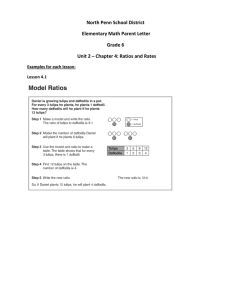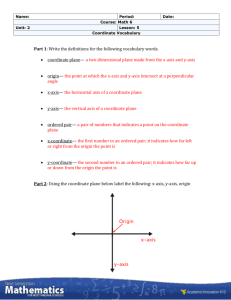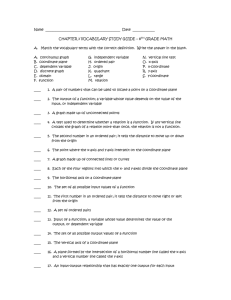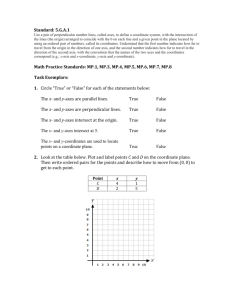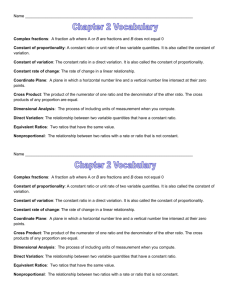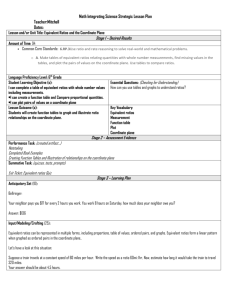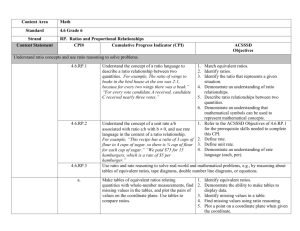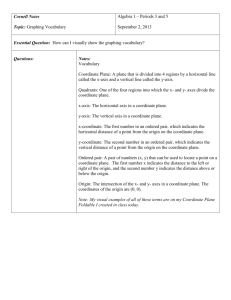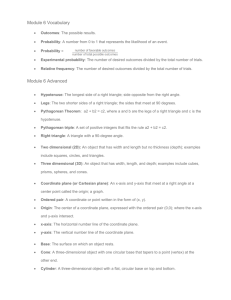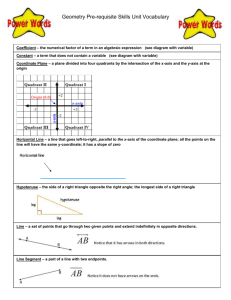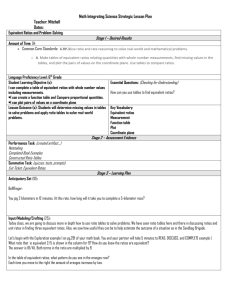Hudson Middle School: Ratios & Rates Parent Letter
advertisement
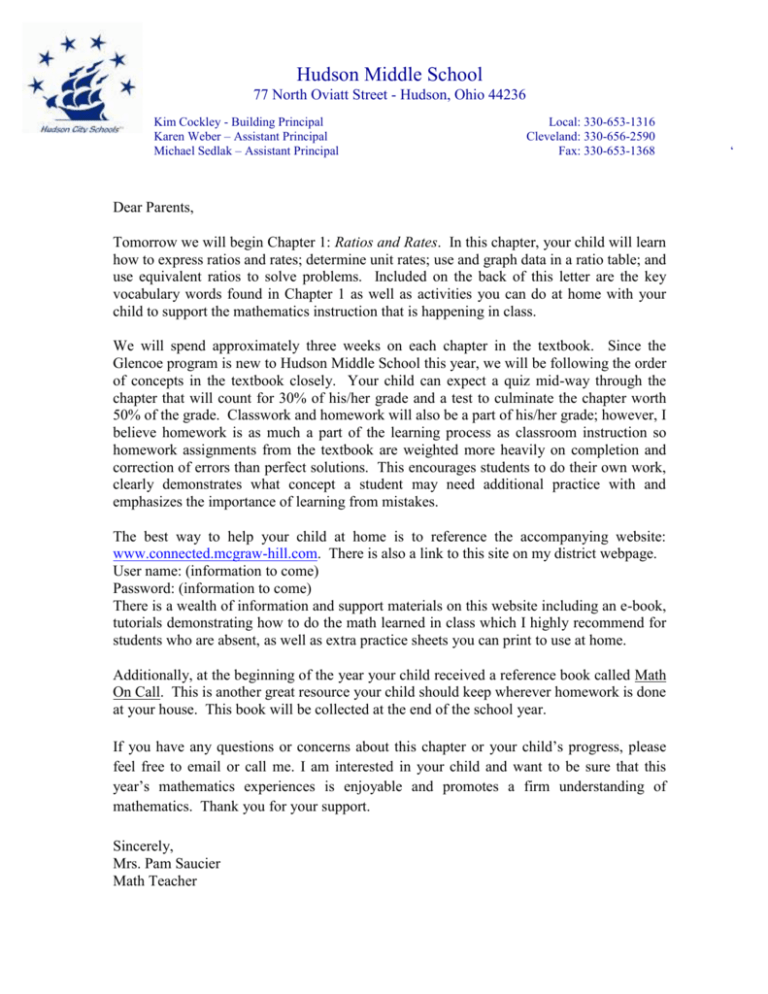
Hudson Middle School 77 North Oviatt Street - Hudson, Ohio 44236 Kim Cockley - Building Principal Karen Weber – Assistant Principal Michael Sedlak – Assistant Principal Local: 330-653-1316 Cleveland: 330-656-2590 Fax: 330-653-1368 Dear Parents, Tomorrow we will begin Chapter 1: Ratios and Rates. In this chapter, your child will learn how to express ratios and rates; determine unit rates; use and graph data in a ratio table; and use equivalent ratios to solve problems. Included on the back of this letter are the key vocabulary words found in Chapter 1 as well as activities you can do at home with your child to support the mathematics instruction that is happening in class. We will spend approximately three weeks on each chapter in the textbook. Since the Glencoe program is new to Hudson Middle School this year, we will be following the order of concepts in the textbook closely. Your child can expect a quiz mid-way through the chapter that will count for 30% of his/her grade and a test to culminate the chapter worth 50% of the grade. Classwork and homework will also be a part of his/her grade; however, I believe homework is as much a part of the learning process as classroom instruction so homework assignments from the textbook are weighted more heavily on completion and correction of errors than perfect solutions. This encourages students to do their own work, clearly demonstrates what concept a student may need additional practice with and emphasizes the importance of learning from mistakes. The best way to help your child at home is to reference the accompanying website: www.connected.mcgraw-hill.com. There is also a link to this site on my district webpage. User name: (information to come) Password: (information to come) There is a wealth of information and support materials on this website including an e-book, tutorials demonstrating how to do the math learned in class which I highly recommend for students who are absent, as well as extra practice sheets you can print to use at home. Additionally, at the beginning of the year your child received a reference book called Math On Call. This is another great resource your child should keep wherever homework is done at your house. This book will be collected at the end of the school year. If you have any questions or concerns about this chapter or your child’s progress, please feel free to email or call me. I am interested in your child and want to be sure that this year’s mathematics experiences is enjoyable and promotes a firm understanding of mathematics. Thank you for your support. Sincerely, Mrs. Pam Saucier Math Teacher ‘ Chapter 1: Ratios and Rates Vocabulary Coordinate plane – a plane in which a horizontal number line and vertical number line intersect at their zero points Equivalent ratios - ratios that express the same relationship between two quantities Greatest common factor - the largest number that is a factor of two or more numbers Least common multiple - the smallest number that is a multiple of two or more whole numbers Ordered pair - a pair of numbers used to locate a point on the coordinate plane, written with the x-coordinate first and the y-coordinate second (x, y) Origin - the location on a coordinate plane where the x-axis and y-axis intersect, referred to as the point (0,0) Prime factorization - factoring a number into prime factors Rate - a ratio that compares two quantities with different kinds of units ex: miles per hour Ratio - a comparison of two quantities by division Ratio table - a table with columns that are filled with parts of numbers that have the same ratio Scaling - multiplying or dividing two related quantities by the same number Unit price - the cost per unit Unit rate - a rate that has been simplified so that is has a denominator of 1 x-axis – the horizontal number line on a coordinate plane x-coordinate - the first number in an ordered pair y-axis – the perpendicular number line on a coordinate plane y-coordinate - the second number in an ordered pair Real-World Activity Make a grocery list with your family. At the store, compare the prices for different sizes of items. Find unit rates for the items to determine which is a better buy. Discuss reasons when purchasing the more expensive items is more appropriate for your situation. Online Activity Make a list of middle schools in nearby areas. Find the ratio of the number of students to the number of teachers in each of the schools. Compare the ratio of students to teachers at Hudson Middle School to other schools. Discuss how these ratios might affect learning.
